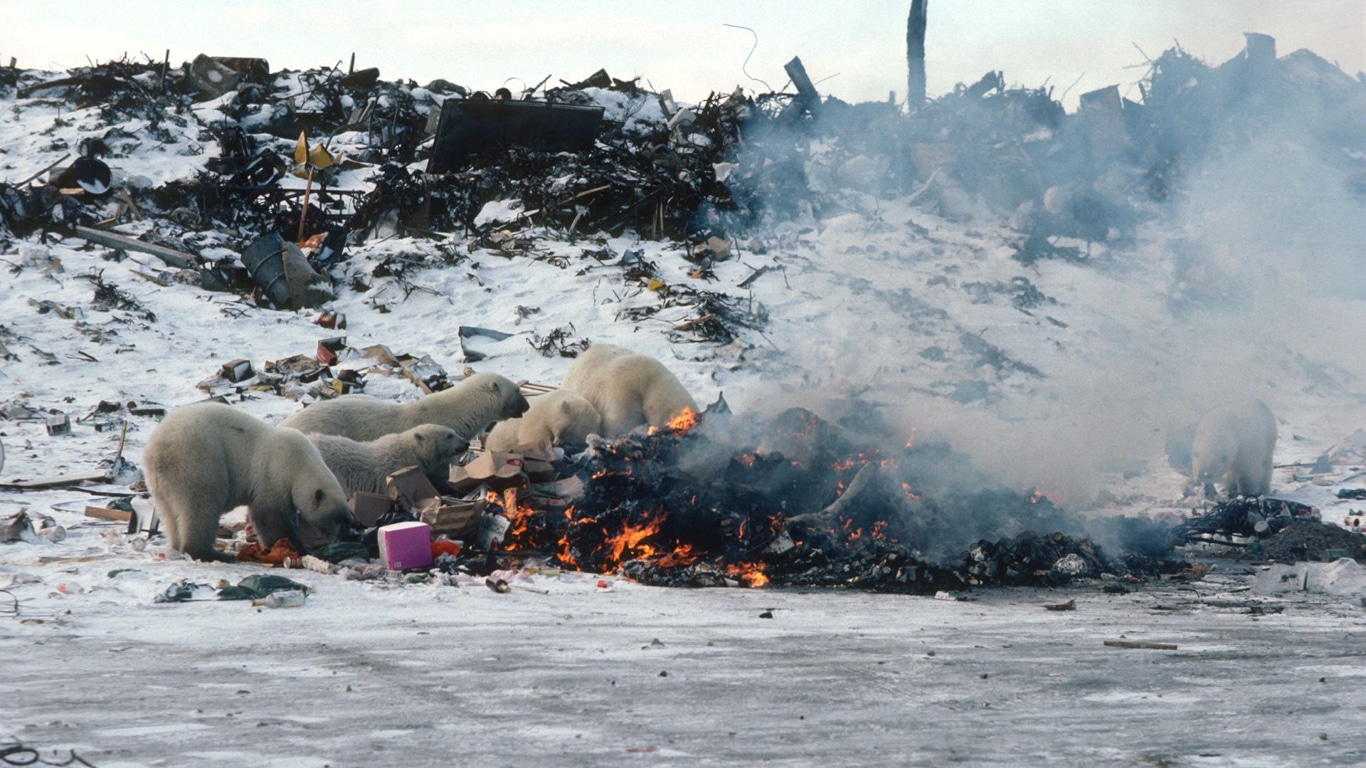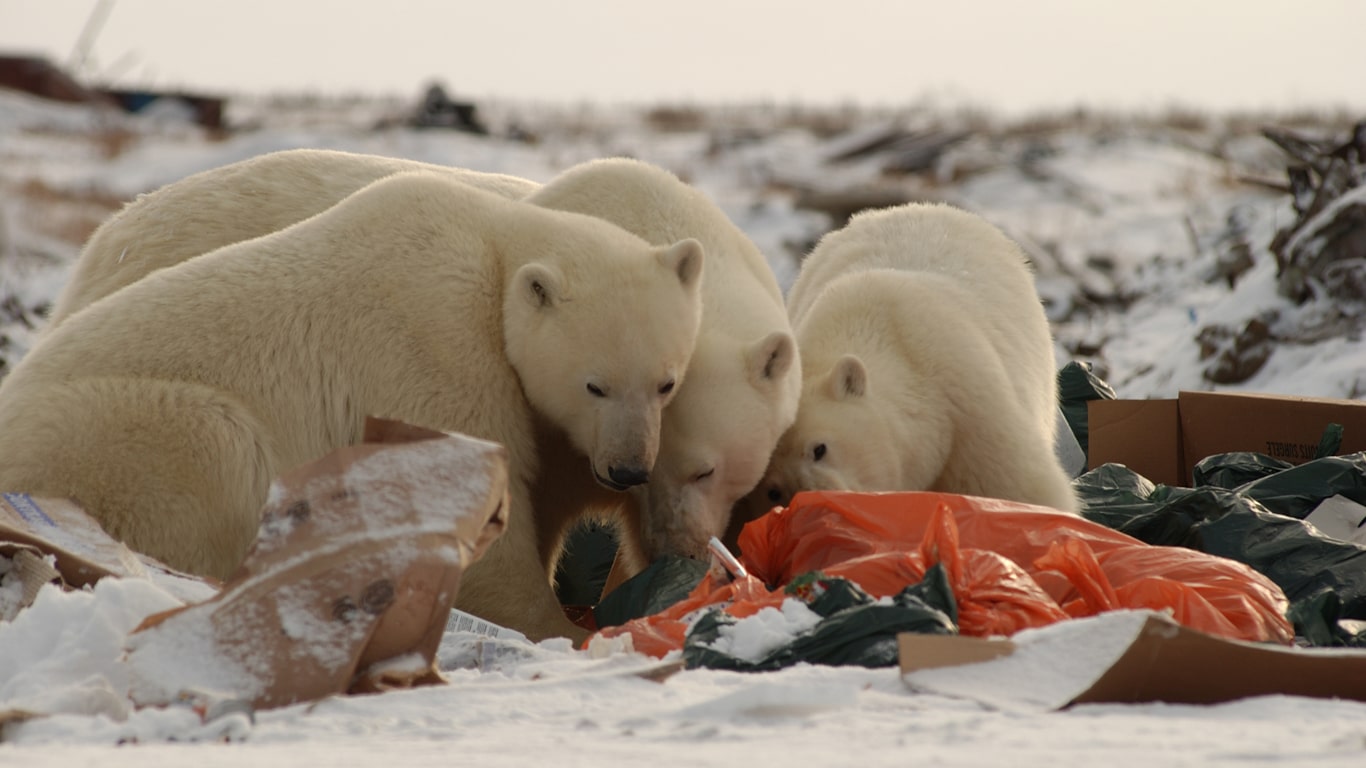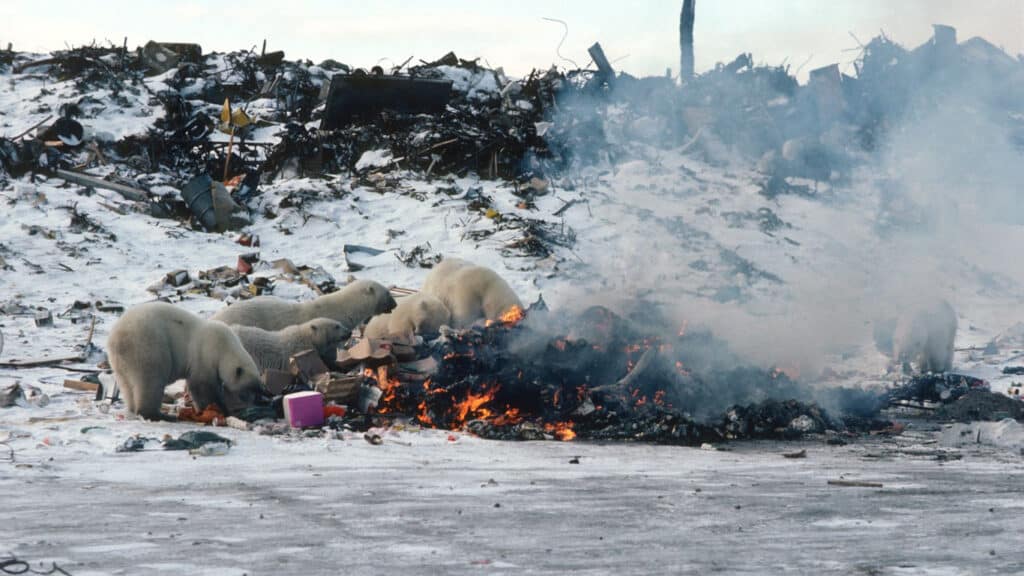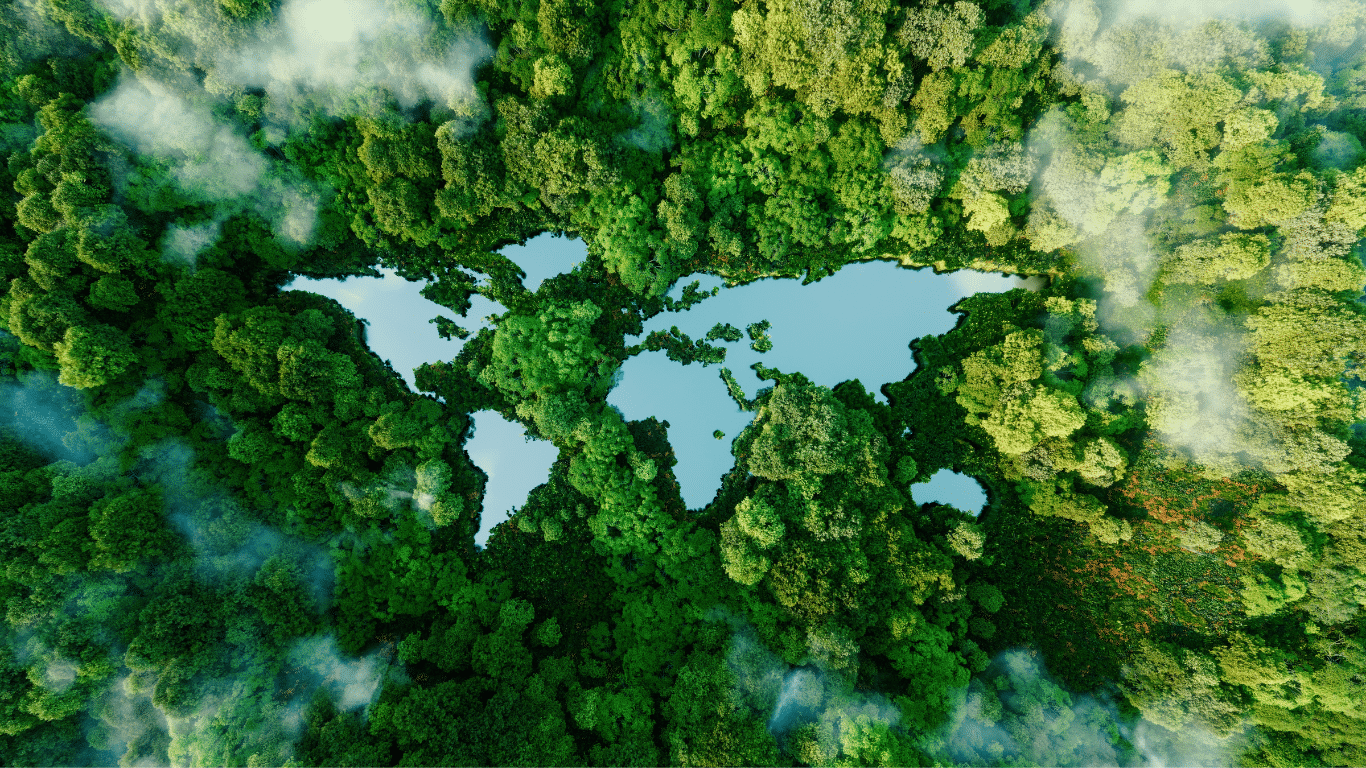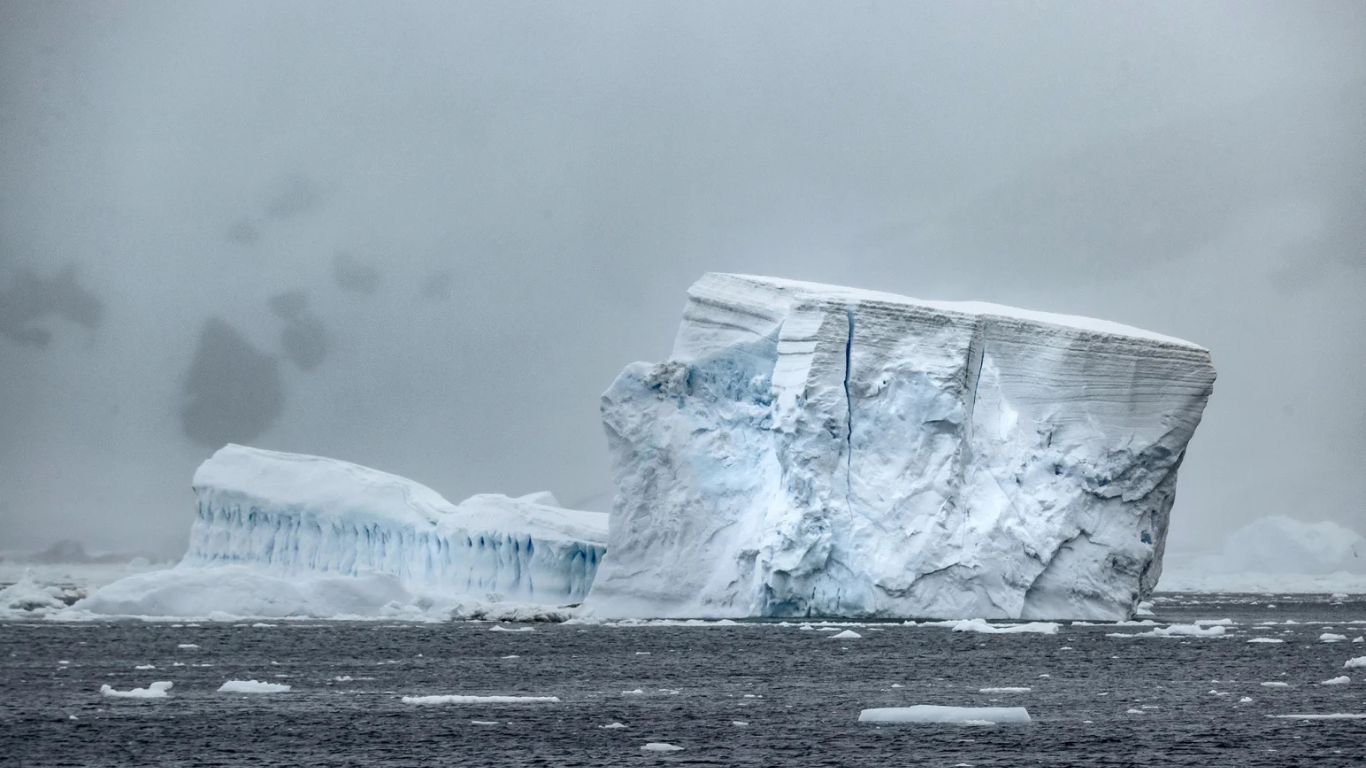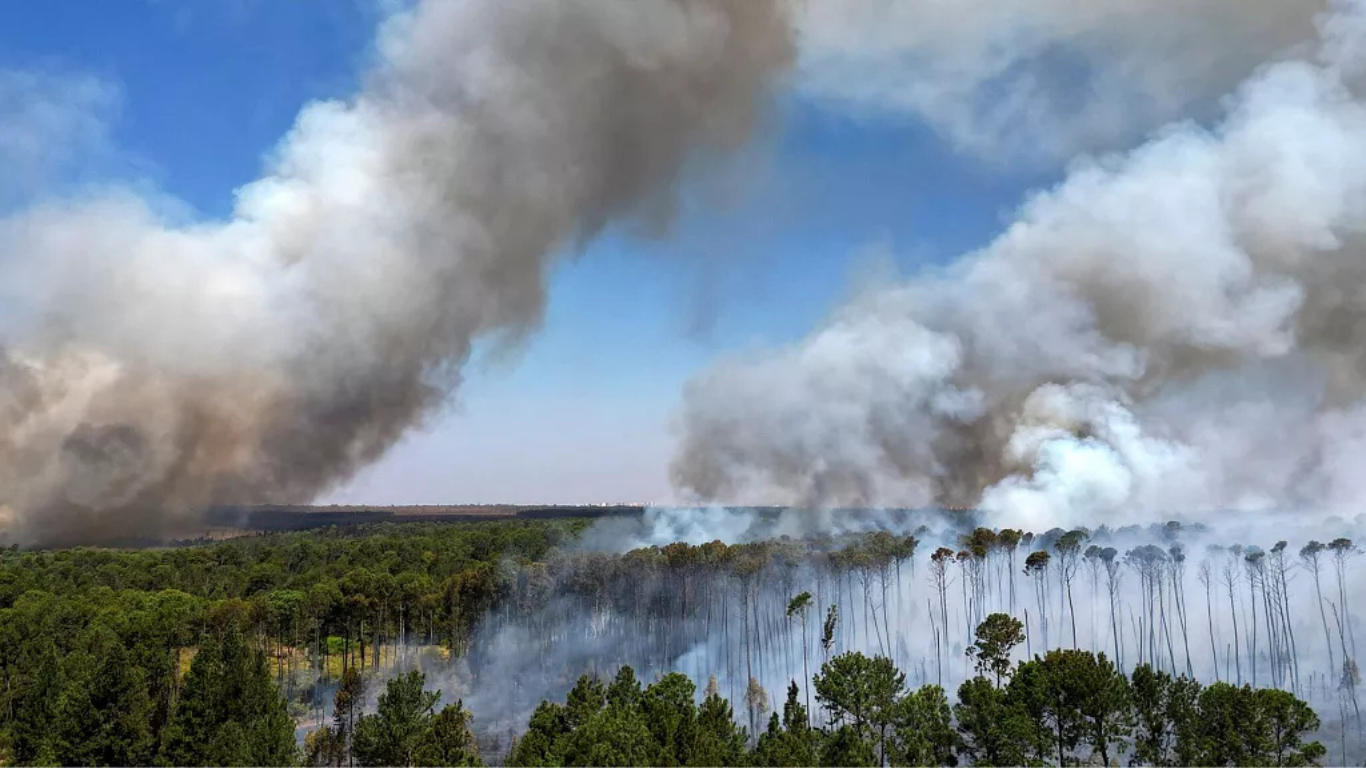As climate change causes temperatures to rise, icy habitats rapidly melt away and refreeze more slowly, leaving polar bears helplessly stranded ashore for extended periods. With little to no ice available for the animals to hunt in deep water and feed on their usual, nutrient-rich food sources, hungry polar bears are now feasting on humans’ trash instead of seals, according to a recent study published online by Cambridge University Press on behalf of Fauna and Flora International.
Polar bears are considered vulnerable by the International Union for Conservation Nature (IUCN) Red List. This is yet another critical threat to the survival of the species and could lead to increased instances of human-wildlife conflict as polar bears scour populated Arctic communities in desperate search of sustenance.
In February 2019, 52 polar bears were spotted feeding in an open dump in Belushya Guba, Novaya Zemlya, Russia. The bears even attempted to enter local buildings. Similarly, another 60 emaciated polar bears were seen scavenging rubbish near Ryrkaypiy, Chukotka, Russia in December 2019. The animals occupied the 600-person village until the sea ice refroze in the fall.
“Bears don’t know all the negatives that come with plastic ingestion and the diseases and toxins they're likely exposed to in a (landfill) setting,” says Geoff York, study co-author and conservation director at Polar Bears International. But adopting a trash diet is not the only issue. Being in such close proximity to humans puts polar bears at grave risk of being killed by people who are afraid of them. In Ryrkaypiy in 2019, locals shot rubber bullets at the apex Arctic predators prowling their village.
Things that can help in future include education, the introduction of polar bear-proof waste storage and adequate law enforcement.
“Polar bears turning to garbage as a supplementary source of food is an alarming consequence of the accelerating climate crisis,” says David Barritt, Executive Director of Animal Survival International (ASI).
“This problem will worsen as global temperatures continue to rise and human populations encroach farther into the Arctic. Polar bears are vital to the Arctic marine ecosystem, and we must continue to fight for the survival of this vulnerable species.”
Banner: DanGuravich_Polar Bears International

